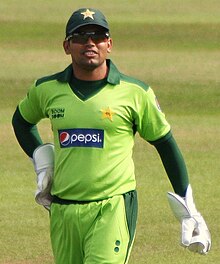Imran Khan Biography.
Source (google.com)
He dazzled the world with his amazing talent, he gave cricket another name, he
is and always will be remembered by cricket fans worldwide. Imran khan, an
unbelievably talented all rounder is the Legend of cricket and has reached the
top like no one else.
This cricketer was born no differently than any other person. He was born in
Lahore, Pakistan into a family of six. He entered the world on November 25,
1952, the only boy and seventh member of his family. His parents gave him the
name Imran Khan Niazi and truly loved him since he is the only boy in their
family.
Imran was part of a well-educated family. His parents believed that their
children should get the best of education, and become something. Imran's parents
have believed this and followed through with it, and that is why Imran's sisters
are so successful today. His older sister Robina is an alumnus of the LSE and
has a senior position in the United Nations in New York; his other sister Aleema
has a master's degree in business administration and runs a successful business;
Uzma is a highly qualified surgeon is working in a Lahore hospital; while his
other sister Rani is a University graduate who coordinates charity work. When it
was time for Imran to go attend a college, he went to the prestigious public
school in Lahore, the Aitchison College. There he was by far the best player on
his team, being a very fine batsmen. He was still though quite far from becoming
the best in the world. As Imran grew older, his interests went from being a
batsmen to being a fast bowler.
When sixteen, Imran made his debut for Lahore. Imran's cousins Javed Burki, and
Majid Khan were a great part of cricket therefore when he made his test debut
people thought that he made it because his family was on the Pakistan's Cricket
Team. (Nepotism)
Later, Imran had to put cricket to the side and focus more on his studies.
Undoubtedly he was back again at the age of eighteen. He played admirably which
resulted in him moving to England as he was chosen to play for a private school
there.
As the year 1971 approached, he made his test debut while visiting England.
During this tour, he was fined many times by the management because he was
looked upon by his peers as being a very snobby and wild player. Also on this
tour, Imran did not play as well. Because of his "not so good" bowling, Pakistan
was costed to settle for a draw. This was the only test match on the tour.
When Imran was twenty-one, he was admitted in the Oxford University. For three
years he studied economics and politics. In 1974 Pakistan toured England and
therefore he was selected because of his form for Oxford University and his
experience with speaking English. He had not succeeded to make a big mark
because all three of his tests were drawn.
In 1976 Imran returned to Pakistan after being away for four years. During the
1976-77 season, Imran got a place in the Pakistan cricket team. He had impressed
the team with his fantastic bowling. Later he moved to play with Sussex. The
biggest reason for Imran to do this was because of his love affairs with the
nightlife of London. He was quite angry at Worcester (a team he played for
before he played for Sussex), because of the racism he found there. During the
time he had been playing for other teams, Imran had become quite a big star.
Everyone was able to see that this guy had talent and played very well. At this
point, not only was he playing well, but had basically become a superstar.
Imran continued to play for Sussex, because he enjoyed it there. At this point
he had become the "father" of the reverse swing. His most famous partner was
Sarfaraz Nawaz, in which the partners could make a lot of runs.
Soon after, under the orders of the top official, Imran came back to Pakistan
to play test cricket for the series against India. During this match, Imran hit
two sixes and a four with only seven balls remaining. Because of Imran's huge
success, one could easily say that Imran was one of the most adored cricketer
through the land at this point.
During the early 80's Imran was not only at his cricketing peak, but had quite
a few relations with women. He had a relationship with Susannah Costantine,
ex-model Marie Helving, and artist Emma Sargeant. Some of his relations ended
simply because of difference in culture and because of the busy and travelling
life of Imran. He brought some of his relationships back home to Pakistan in
which he was frowned upon because he was an individual of Muslim faith.
When Imran was thirty, he became the captain of the Pakistan cricket team. He
lead them to a victory against England in their second test match.
During the years of his captaincy, Imran had broken his shin. Even though this
was so, Imran continued to bowl, whether there was pain or not. Because of his
injury, Imran was able to put bowling to the side and concentrate more on his
batting. Imran improved his batting greatly which led him to his first century
in a one day match.
In 1987, Imran decided to retire from cricket. Javed Miandad took his place.
Because Pakistan's best captain was gone; the team was in somewhat of crisis.
President Zia put a lot of pressure on Imran, therefore he was back as a captain
in 1988.
In 1992, the world cup final was Imran's exit from cricket. He led Pakistan to a
great victory over India. Pakistan had won the World Cup. It was time for Imran
to retire, which brought a lot of grief to Pakistan. He ended his career with an
outstanding score of 3807 runs and 362 wickets in only test matches. During his
career, Imran had turned the Pakistan cricket stars into the stars they are
today. The day that Imran retired was a very big day. So big that the President
of that time, Zia personally tried to stop him from retiring. Imran said that he
wanted to retire at the highest point of his popularity so that people would be
able to remember him forever.4 He wanted his name to be in all hearts and be
recognized for all his accomplishments. Imran had officially ended his career as
a cricketer and is truly remembered by all.
When Imran won the world cup, he had raised twenty five million dollars to
build a cancer hospital in memory of his mother. About ten years ago when
Imran's mother had cancer; Imran was desperately looking for some place to take
her, but none of the hospital's in Pakistan had the right facilities to treat
her. When Imran took her to an outside country, it was too late; she had lost
her battle against cancer. Eversnice then, Imran has wanted to build a cancer
hospital. Today he has a wonderful hospital standing in Lahore, Pakistan. It is
named after his mother Shawkat Khanam. Imran does not charge anything to
patients who cannot afford the treatment.
In 1995, Imran decided to settle down and marry. He married Jemima Goldsmith who
is the daughter of a millionaire. She was Jewish and converted to Islam by
choice just before the two got married. Their wedding took place in Paris. When
they came back to London, they threw a party which was more for the public.
On November 18th 1996, Imran and Jemima were the proud parent's of a baby boy.
The named him Suleiman Isa. On April 10th, 1999 Jemima gave birth to yet another
baby boy. They have named him Kassim.
Today, Imran has entered the world of politics and has set up his own party. He
continues to fundraise for his hospital. He does this by taking tours with
popular stars. Some stars donate their money to Imran's hospital. Jemima designs
clothes and sells them overseas. The profit goes to the Shawkat Khanam Memorial
Hospital. Also the restaurant in London, Salt and Pepper gives its profits to
the hospital.
Imran Khan
Imran Khan
Imran Khan
Imran Khan
Imran Khan
Imran Khan
Imran Khan
Imran Khan
Imran Khan
Imran Khan

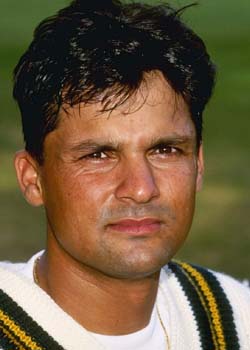



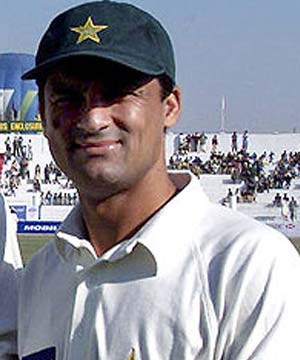
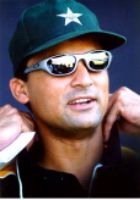











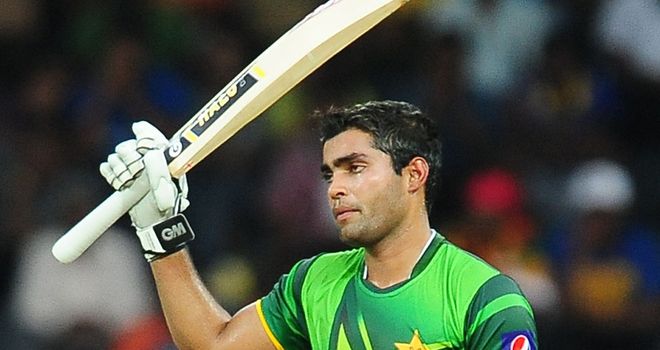








_cropped.jpg)














